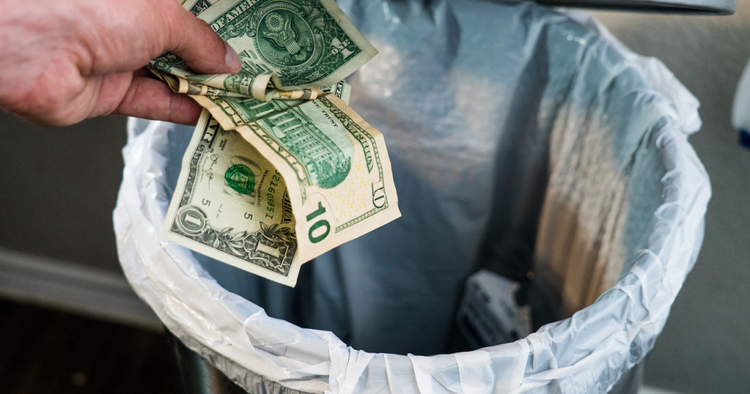President’s Message

Financial Illiteracy Is an Epidemic
This week's message is brought to you by the League's David Hinchey, where he highlights the lack of financial education among Americans. I hope you'll join us this spring as we reintroduce in-person financial reality fairs, which deliver a personal finance experience to high school students.
As always,
Bruce
What would you do if you saw $1,819 sitting on the sidewalk? Would you pick it up? Of course you would. But you would most certainly wonder how that oddly specific amount ended up abandoned there.
Here’s how it happened: in 2022, Americans lost an average of $1,819 to personal financial errors according to the National Financial Educators Council.
Unforced financial errors continue to cost Americans at a time when their household budgets are stressed and stretched. The current inflationary environment only adds insult to injury. Everybody makes mistakes, and financial education will not eliminate every mistake. But it sure does help.
“Financial illiteracy is an epidemic in the U.S., and it's coming at a time when the economic climate is changing rapidly,” says Vince Shorb, CEO of the NFEC. “That means financial education has never been more important than it is today.”
The numbers speak for themselves: With 240 million American adults, the aggregated average loss of $1819 equals $436 billion.
You can read the article here (at Yahoo).
Financial education lies at the very heart what credit unions do and who they are. Most people do not educate themselves on personal finance and good saving and spending habits, and credit unions can help fill that gap.
High earners are not immune to financial mistakes. 51 percent of Americans earning six-figure salaries admitted to living paycheck to paycheck just last year according to LendingClub and Pymnts.com.
What’s more, is that 64 percent of US consumers were living on razor-thin budgets each month, up from 61 percent. You can read that article here (at New York Post).
“The effects of inflation are eating into every American’s wallet and as the Fed’s efforts to curb inflation drive up the cost of debt, we are seeing near-record numbers of Americans living paycheck to paycheck,” said Anuj Nayar, financial health officer at LendingClub.
“While the number of Americans living paycheck to paycheck is close to the height we saw in the middle of the pandemic, the causes appear to be very different, as the economy is not sheltering in place like it was back in 2020,” Nayar added.
No matter what study or articles you read, there’s one thing you can do in the short term to help educate young people on their finances.
The League’s foundation—Credit Unions Building Financial Independence—raises money to help credit unions put on financial reality fairs.
After nearly three years of the pandemic, CT’s credit unions are picking up where they left off in 2019.
Using the Bite of Reality app, we’ve got a full slate of fairs taking place this spring—likely one every week this spring.
Some credit unions are taking the materials and doing one for their local schools as private events, and others hosting regional events for multiple schools and looking for volunteers.
These events make a huge impact on students and it’s a way for credit unions to show leadership in personal finance and decision-making.
I hope you’ll consider volunteering for an upcoming fair, sending members of your staff or donating to the foundation directly to help support the program.
See you this spring,
Dave Hinchey
VP of Community and Social Impact
Financial Reality Fairs Volunteers Needed:
March 28, 2023 at Central Connecticut State University - dtardif@seasonsfcu.org
April 19, 2023 at Lewis S. Mills High School - droy@nwhcu.com
May 4, 2023 at Killingly High School - mmartellotta@coreplus.org

